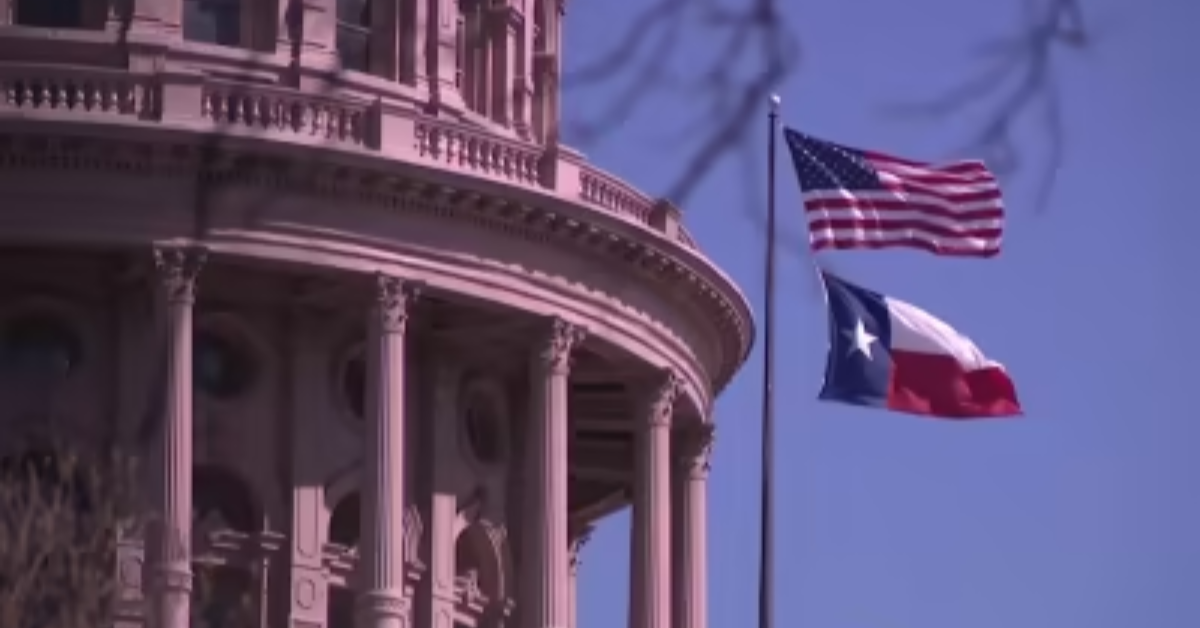Journalists and people who support free speech are worried about a bill that is making its way through the Texas Legislature. This bill, they say, would make it easier for people and news organizations to be sued for silly reasons in order to shut down free speech.
At issue is a planned change to the 2011 Texas Citizens Participation Act, also called the anti-SLAPP law. This law is meant to stop people from using the legal system as a weapon to punish people for exercising their First Amendment rights or stop them from doing so. The idea behind this law is that if it didn’t exist, big businesses or rich people could do a lot of damage by suing people for speech they didn’t like.
Texas Legislature May Threaten Free Speech
According to Texas Tribune, which stands for “strategic lawsuits against public participation.” Even if the suits are pointless, the defendants could have to pay thousands of dollars or more in court fees and legal bills because they have to deal with them. Or, the fear of being sued could make people change what they say.
Under the law from 2011 that limits SLAPP suits, a person or business that is sued in what they think is a SLAPP case can file a motion to dismiss the suit. If the judge in the trial court says no, the offender can file an appeal right away, and the case is put on hold while the appeals court looks at it.
But Senate Bill 896 would get rid of this automatic stay from state law. This worries people who are against the bill because it could let some cases go forward with expensive and time-consuming requests for proof. The bill has already been approved by the Senate, and on Wednesday, it was discussed by the House Judiciary and Civil Jurisprudence Committee. Business groups like the Texas Association of Business and Texans for Lawsuit Reform back the bill. They say that accused have used the automatic stay during an appeal to delay real cases, sometimes in ways that have nothing to do with the First Amendment.
One civil litigator, Shahmeer Halepota, talked about a case between a developer and a contractor in Houston that was about building apartment towers. Three years into the case and one month before it went to trial, the defendants filed an anti-SLAPP move. That automatically put the case on hold, so his developer client missed out on business possibilities, he said. He said that an appeals court later ruled that the anti-SLAPP move was a waste of time.
“My clients have lost literally millions of dollars,” Halepota said on Wednesday.
SB 896 would get rid of the automatic stay on the case if the trial court judge thought that the anti-SLAPP move was made just to waste time or for no other reason. If the anti-SLAPP motion was rejected and it was found that it wasn’t filed on time, there would still be an automatic stay, but it would end in 45 days if an appeals court didn’t step in. Proponents say that the goal is to keep what is supposed to be a legal shield from being turned into a sword and used actively to needlessly drag out legal cases. People who are against the bill say it would add more work to a court system that is already overworked.
“The bill would create a two-tier system in which parties, in certain instances, would be forced to litigate their cases simultaneously at the trial and appellate courts, which will cause significant perils for both litigants and courts,” Wallace B. Jefferson, who served as chief justice of the Texas Supreme Court from 2004-13, said in prepared testimony.
At a committee meeting on Wednesday, leaders of the Texas Press Association and the Texas Association of Broadcasters, as well as lawyers who work on the First Amendment, all spoke out against the plan. A lot of news outlets and advocacy groups, like the American Civil Liberties Union of Texas and the True Texas Project, as well as the Associated Press, Axios, Fox Television Stations, The Dallas Morning News, The Houston Chronicle, The New York Times, The Washington Post, and The Texas Tribune, have also come out against the bill. You see that The Overnight Cold Front Will Bring Storms To North Texas.
The groups point out that judges in trial courts often make mistakes and that libel cases are often thrown out on appeal. They say that if there isn’t an automatic stay, media companies might have to fight the same case in two places at the same time, trying to get the case thrown out on appeal while also going through hard and expensive evidence in the trial court.
In the end, they say, SLAPP cases are meant to be very expensive, even if the person who filed it knows they will lose. Opponents of the new law say that it would make it more expensive for news sites to defend themselves in court against SLAPP lawsuits and would raise the cost of media liability insurance.
“A free press and accurate news reporting depend upon journalists to identify, investigate, and report out stories without concern that the subjects in the story could sap their newsroom of resources through a meritless court case,” the Reporters Committee for Freedom of the Press wrote in a letter to state Rep. Jeff Leach, R-Plano, chair of the judiciary committee and sponsor of the bill. The letter was also signed by 44 news outlets, including the Tribune.
In a letter, the editors of the four Hearst Newspapers in Texas talked about a case from 2016 when one of their papers, the Houston Chronicle, was sued by a nearby bar because of a short story about a shooting. A judge said that the newspaper’s move to dismiss was too late. It took seven months to change that decision, and another five years before the Chronicle “was able to get a court to look at the merits of its motion to dismiss and decide that the claims were not true.”
The letter said that weakening the anti-SLAPP law would put defendants in an “intolerable situation” where they would have to go through expensive litigation at both the trial and appellate levels at the same time or try to reach a settlement that might not work if the court finds that the defendant was legally exercising its constitutional right. The chief editor of the Chronicle, Maria Reeve, and the top editors in San Antonio, Laredo, and Beaumont all signed the letter. About to end of this news we can share the latest piece of news about Planned Musical Selections For April 18 Concert In Fredericksburg, Texas.
Advocates for the media are also worried about the effect on small news sites that don’t have the money to fight back. Donnis Baggett, the executive vice president of the Texas Press Association, told the committee on Wednesday that many of the hundreds of newspapers his group represents are small-town, family-run newspapers that “just can’t survive a long, drawn-out lawsuit.”
Below we have given a tweet about Texas Legislature Could Undermine Free Speech Law. Ypu can see below:
Read "Journalists fear Texas Legislature could weaken law designed to protect free speech" on SmartNews: https://t.co/1qXvHr4BVs #SmartNews
— Ron Haussecker (@Haussecker1Ron) April 27, 2023
He said that many of these papers might not be able to stay in business if they were hit with SLAPP suits. These papers give important information about a community, like high school sports, political news, and accountability work about what their local governments do. “If you spend all the money on a small newspaper, that community won’t have one anymore,” he said.
Leach said Wednesday that he “will not support any bill that weakens the First Amendment protections of free speech.” But he also acknowledged “some very real problems and concerns” with the law as it is written and expressed a desire to address them while preserving the anti-SLAPP rules.
After hearing emotional and sometimes tense testimony about the bill, he told people on both sides to go to lunch and figure out a plan that would work for everyone. But no one voted on the bill Wednesday morning.




